Jade Varden's Blog, page 46
January 2, 2014
Writing 101: Self-Publishing in 2014
I realized the other day that just 100 years ago, we were still marveling at steam energy. The first cars had been invented, but they weren't popular or very affordable, and man had only just learned that he could fly. Today I walk around with a computer in my pocket, and I'm totally allowed to vote in all elections. Life has changed a lot in the last century, and it's going to keep changing in the next year. So what can you expect from the world of self-publishing? I'm going to make a few predictions.

Into the Future
Lots of things can happen in just one year. In 2013, a new Pope was elected. Eric Snowden broke the NSA scandal and promptly fled to Russia. The Chinese landed on the moon (not the whole country, just the Yutu rover). A future King was born (Prince George of Cambridge). And self-publishing boomed, with more than 100,000 new titles published.
New electronics devices and software programs have made it possible anyone to read anything at any time. The wide availability of ebooks has made it possible for more authors to publish titles than ever. So where will we go from here?
The Guardian predicts that self-help books will gain ground in the self-publishing industry in 2014. I predict that of this genre, self-help books that offer tips for self-publishing will be the biggest sellers.
Forbes says authors should prepare for even more independent ereaders and ereader apps to hit the market. This may create more formatting nightmares for indies.
Digital Book World made one of the boldest predictions for 2014: Barnes & Noble will close. Now that the Kindle Fire is available, the Nook is failing in the popularity contest and Amazon is far outselling B&N's ebook store. Nook is losing money, and businesses don't like to lose money.
And I predict that reading will become much more social in 2014. Let us not forget that Amazon purchased Goodreads in 2013, and so far hasn't changed a lot on the site. I think they're waiting for the new year. Look for lots more integration between Amazon and Goodreads in the year ahead, with lots of links to social media sites like Twitter and Facebook.
The ebook market came very close to matching the traditional book market in 2013, in terms of the number of books published. Perhaps 2014 can become the year of the indie author, when we become the majority and the traditionally published writers turn into a fringe group.
Self-publishing in 2014 will require what all good publishing needs: strongly-edited and well-written works, with splashy but tasteful covers and catchy blurbs. Here's hoping that you get all of that in the year ahead.

Into the Future
Lots of things can happen in just one year. In 2013, a new Pope was elected. Eric Snowden broke the NSA scandal and promptly fled to Russia. The Chinese landed on the moon (not the whole country, just the Yutu rover). A future King was born (Prince George of Cambridge). And self-publishing boomed, with more than 100,000 new titles published.
New electronics devices and software programs have made it possible anyone to read anything at any time. The wide availability of ebooks has made it possible for more authors to publish titles than ever. So where will we go from here?
The Guardian predicts that self-help books will gain ground in the self-publishing industry in 2014. I predict that of this genre, self-help books that offer tips for self-publishing will be the biggest sellers.
Forbes says authors should prepare for even more independent ereaders and ereader apps to hit the market. This may create more formatting nightmares for indies.
Digital Book World made one of the boldest predictions for 2014: Barnes & Noble will close. Now that the Kindle Fire is available, the Nook is failing in the popularity contest and Amazon is far outselling B&N's ebook store. Nook is losing money, and businesses don't like to lose money.
And I predict that reading will become much more social in 2014. Let us not forget that Amazon purchased Goodreads in 2013, and so far hasn't changed a lot on the site. I think they're waiting for the new year. Look for lots more integration between Amazon and Goodreads in the year ahead, with lots of links to social media sites like Twitter and Facebook.
The ebook market came very close to matching the traditional book market in 2013, in terms of the number of books published. Perhaps 2014 can become the year of the indie author, when we become the majority and the traditionally published writers turn into a fringe group.
Self-publishing in 2014 will require what all good publishing needs: strongly-edited and well-written works, with splashy but tasteful covers and catchy blurbs. Here's hoping that you get all of that in the year ahead.
Published on January 02, 2014 05:30
January 1, 2014
A Year in Rantings
I made it a point to write a big New Year's post last year, so I felt that I could do no less this time around. Like many people, I made a New Year's resolution. And like the majority of people, I broke it. At least I know I have something in common with others.

Rambling
But I'm probably not going to write about other things I might have in common with other people. My New Year's resolution was to write more personal blog posts, in the fashion of a blogger that I admire. And honestly, I really, really tried to follow it.
I actually have several posts that are half-written, all of them intended for my regular personal little feature. Each one is more insane than the next. One was a gigantic rant about how money has no real value, in which I told a story wherein I'm a cave man who can't hunt effectively. The next one I tried to write was all about a toxic love affair I have with baking, and started out with me writing about how I used to wear a tutu.
I'm sure you can understand why these posts haven't been published. I even tried to write a post about how I haven't been writing any posts, and led myself around in so many circles I had to abandon the journey altogether. This is not unusual. I get lost often.
But after skimming over them once more, I realized that most of these posts zeroed in on a central theme: I'm having trouble writing my newest book. I worked on Hope's Rebellion all year long. It was such a departure from the norm for me, I had to really focus to put myself inside the story and get it out on the page. I did a lot of pacing in 2013, and re-writing and second-guessing. But Hope's Rebellion is finished, and it's now available and I hope you'll all take a look at it.
I didn't really meet my New Year's resolutions last year, but I'm bold enough to try again with a new one. This time around, I'm choosing a resolution I'm certain I can complete. I'm going to finish my newest book by summer, half the year, and publish another to follow. I have my next two projects planned carefully, so I think I can do it.
I'll let you know how it all went in 2015!

Rambling
But I'm probably not going to write about other things I might have in common with other people. My New Year's resolution was to write more personal blog posts, in the fashion of a blogger that I admire. And honestly, I really, really tried to follow it.
I actually have several posts that are half-written, all of them intended for my regular personal little feature. Each one is more insane than the next. One was a gigantic rant about how money has no real value, in which I told a story wherein I'm a cave man who can't hunt effectively. The next one I tried to write was all about a toxic love affair I have with baking, and started out with me writing about how I used to wear a tutu.
I'm sure you can understand why these posts haven't been published. I even tried to write a post about how I haven't been writing any posts, and led myself around in so many circles I had to abandon the journey altogether. This is not unusual. I get lost often.
But after skimming over them once more, I realized that most of these posts zeroed in on a central theme: I'm having trouble writing my newest book. I worked on Hope's Rebellion all year long. It was such a departure from the norm for me, I had to really focus to put myself inside the story and get it out on the page. I did a lot of pacing in 2013, and re-writing and second-guessing. But Hope's Rebellion is finished, and it's now available and I hope you'll all take a look at it.
I didn't really meet my New Year's resolutions last year, but I'm bold enough to try again with a new one. This time around, I'm choosing a resolution I'm certain I can complete. I'm going to finish my newest book by summer, half the year, and publish another to follow. I have my next two projects planned carefully, so I think I can do it.
I'll let you know how it all went in 2015!
Published on January 01, 2014 05:30
December 31, 2013
Hope's Rebellion: Now Available!
Hope's Rebellion is now available!
Smashwords Amazon
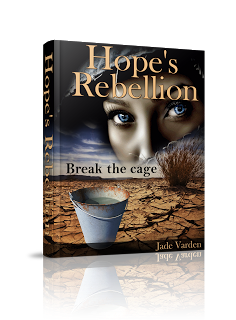
Their friendship will test the fabric of tradition, duty and destiny...
There are only two seasons in Godenor: summer and winter. Weather brings the only surprises to a society where everything is planned, and everyone's status is determined at birth...by the color of their hair.
Rinna has the right hair, Drexi the wrong, and Prelly is almost too ordinary -- in every way but one. Small mistakes bring them together, creating ripples in a pond that knows nothing but serenity. If they reach their goals, they can't help but shatter the world they know.
Love of any kind, even the bond of friendship, isn't allowed in their world...but then, the heart can't always follow orders.
Smashwords Amazon

Their friendship will test the fabric of tradition, duty and destiny...
There are only two seasons in Godenor: summer and winter. Weather brings the only surprises to a society where everything is planned, and everyone's status is determined at birth...by the color of their hair.
Rinna has the right hair, Drexi the wrong, and Prelly is almost too ordinary -- in every way but one. Small mistakes bring them together, creating ripples in a pond that knows nothing but serenity. If they reach their goals, they can't help but shatter the world they know.
Love of any kind, even the bond of friendship, isn't allowed in their world...but then, the heart can't always follow orders.
Published on December 31, 2013 14:00
Writing 101: Writing Responsibly
The end of the year is an excuse to celebrate, to let go a little, to start all over again tomorrow. New Year's Eve is the biggest party of the year for many people, but it's not the only party. And if your characters are going to be mixing with dangerous activities (like heavy drinking) in your stories, you have to make sure you're writing responsibly. ...Don't you?

What's Your Poison?
As a YA writer, I've often pondered the responsibilities of authors. Shouldn't a YA writer avoid writing about characters who have unprotected sex, for example? Shouldn't a children's book author shy away from themes like murder and torture? A character who goes about breaking rules and acting wild and yet faces no consequences could be seductive, in a way.
I'll use Breakfast at Tiffany's as an example. I saw the movie when I was still fairly young, and to me it was all about Audrey Hepburn's glamor and the majesty of New York City (and eating Danish in front of the Tiffany & Co. window). To me, at that time, it seemed that Holly Golightly had an amazing life. So what did I want to do with my life? I wanted to be a professional dater, like Holly. It was a few years later that I learned Breakfast at Tiffany's is based on a book, and Holly is actually a hooker (high-class, but still). So there you have it. Had I followed Holly's steps, I could be living in a barren New York walk up with a nameless cat right this minute.
These two examples, to me, represent both ends of the responsibility spectrum. Truman Capote made New York's cafe society look very glamorous and appealing to me as a young girl. Shouldn't he have made Holly face more consequences, suffer some great downfall? Shouldn't he have showed me why her lifestyle was fundamentally flawed?
Or should he? Salinger wrote a rambling tale about a man wandering around New York City, and it inspired a killer. But his book is not about killing, so how can any blame be piled at the author's door? He wrote a book that many people love, and one man used it to commit murder with total randomness. Where, in all that, does Salinger's responsibility begin and end?
When any book can inspire any emotion, even something so twisted we're all left scratching our heads 30 years later, does the author have any responsibility for what he or she writes?
That's up to the author. Some authors entertain. Some impart wisdom. Some teach things. Some may do all of this. But novels are stories, and they are fiction. And at the end of the day, no author has the ultimate responsibility for teaching anyone the difference between what's right and what's wrong. The problem with books is that the message is almost always lost, or changed, as the story is read by different people. Everyone will see in it what they want to see, not necessarily what you as the author intended to write. So as far as responsibilities go, you should be responsible for yourself. Write something that you can be proud of, and feel good about, and stand by it. That's the best you can do.

And on that note, stay responsible tonight for yourself as well. Come back in the New Year for more writing tips and everything else indie authors need. See you then!

What's Your Poison?
As a YA writer, I've often pondered the responsibilities of authors. Shouldn't a YA writer avoid writing about characters who have unprotected sex, for example? Shouldn't a children's book author shy away from themes like murder and torture? A character who goes about breaking rules and acting wild and yet faces no consequences could be seductive, in a way.
I'll use Breakfast at Tiffany's as an example. I saw the movie when I was still fairly young, and to me it was all about Audrey Hepburn's glamor and the majesty of New York City (and eating Danish in front of the Tiffany & Co. window). To me, at that time, it seemed that Holly Golightly had an amazing life. So what did I want to do with my life? I wanted to be a professional dater, like Holly. It was a few years later that I learned Breakfast at Tiffany's is based on a book, and Holly is actually a hooker (high-class, but still). So there you have it. Had I followed Holly's steps, I could be living in a barren New York walk up with a nameless cat right this minute.
These two examples, to me, represent both ends of the responsibility spectrum. Truman Capote made New York's cafe society look very glamorous and appealing to me as a young girl. Shouldn't he have made Holly face more consequences, suffer some great downfall? Shouldn't he have showed me why her lifestyle was fundamentally flawed?
Or should he? Salinger wrote a rambling tale about a man wandering around New York City, and it inspired a killer. But his book is not about killing, so how can any blame be piled at the author's door? He wrote a book that many people love, and one man used it to commit murder with total randomness. Where, in all that, does Salinger's responsibility begin and end?
When any book can inspire any emotion, even something so twisted we're all left scratching our heads 30 years later, does the author have any responsibility for what he or she writes?
That's up to the author. Some authors entertain. Some impart wisdom. Some teach things. Some may do all of this. But novels are stories, and they are fiction. And at the end of the day, no author has the ultimate responsibility for teaching anyone the difference between what's right and what's wrong. The problem with books is that the message is almost always lost, or changed, as the story is read by different people. Everyone will see in it what they want to see, not necessarily what you as the author intended to write. So as far as responsibilities go, you should be responsible for yourself. Write something that you can be proud of, and feel good about, and stand by it. That's the best you can do.

And on that note, stay responsible tonight for yourself as well. Come back in the New Year for more writing tips and everything else indie authors need. See you then!
Published on December 31, 2013 05:30
December 30, 2013
Writing 101: Was It 'Inspired By,' or Was It Ripped Off?
The topic of plagiarism came up the other day while I was writing a Books on Film post, and I got to thinking about it again while I was watching an old movie the other night. As an author, you are an observer of life. But where is the line between writing what you've observed...and stealing someone else's story?
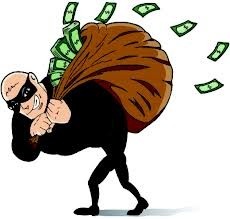
Legalities
I've mentioned before that I'm a bit of a Wikipedia buff (or maniac). I get caught up asking myself random questions (like whatever happened to the little girl from Uncle Buck?) and I learn things. Most things I learn aren't of any use, and sometimes all I get out of is more questions. That's the case with the anecdote I'm about to present, and the problem of ethics it's created for me.
I was thinking about plagiarism anyway because I'd just written about Doc Hollywood, a 1990s movie that many critics have accused of being the inspiration for Disney's Cars. The plots are startlingly similar, but I've noticed similar mirror plots in other films (check out The Cutting Edge and Blades of Glory, for example). When someone writes something and publishes it and someone else writes something very close and publishes that, it's plagiarism -- and it's a hard-and-fast rule. But ripping off a story that isn't written down...this is a little harder to define.
I started thinking about it while I was watching Goodbye, Mr. Chips. It's a lovely little story and a surprise Oscar winner from 1939 (competing with the likes of Gone With the Wind and The Wizard of Oz), and one of my favorites. It tells the story of an inspirational teacher, and back then it was still a fairly new story to tell, and after one of my crazy Wikipedia benders I found that it was largely based on a real person. It was a teacher that the author had when he was a boy.
And at first blush, that sounds nice. A teacher inspired a student not just to write, but to write about himself. And one step more, the movie became a beloved production that's still watched by the likes of me today. But it begs the question: what the heck did that inspirational teacher get out of the deal, other than a tiny comment in the middle of a big Wikipedia entry? And why is it okay, and totally accepted, that in this scenario the teacher doesn't get a thing?
The real question is this: when does inspiration cross the line and become theft? It's hard to answer, and that's why it's hard to prove in court. Many authors have faced lawsuits based on this issue. So perhaps the line is crossed when the person who inspires the story says it has. To play it safe, talk to your inspiration before you publish -- and avoid messy legal issues later.

Legalities
I've mentioned before that I'm a bit of a Wikipedia buff (or maniac). I get caught up asking myself random questions (like whatever happened to the little girl from Uncle Buck?) and I learn things. Most things I learn aren't of any use, and sometimes all I get out of is more questions. That's the case with the anecdote I'm about to present, and the problem of ethics it's created for me.
I was thinking about plagiarism anyway because I'd just written about Doc Hollywood, a 1990s movie that many critics have accused of being the inspiration for Disney's Cars. The plots are startlingly similar, but I've noticed similar mirror plots in other films (check out The Cutting Edge and Blades of Glory, for example). When someone writes something and publishes it and someone else writes something very close and publishes that, it's plagiarism -- and it's a hard-and-fast rule. But ripping off a story that isn't written down...this is a little harder to define.
I started thinking about it while I was watching Goodbye, Mr. Chips. It's a lovely little story and a surprise Oscar winner from 1939 (competing with the likes of Gone With the Wind and The Wizard of Oz), and one of my favorites. It tells the story of an inspirational teacher, and back then it was still a fairly new story to tell, and after one of my crazy Wikipedia benders I found that it was largely based on a real person. It was a teacher that the author had when he was a boy.
And at first blush, that sounds nice. A teacher inspired a student not just to write, but to write about himself. And one step more, the movie became a beloved production that's still watched by the likes of me today. But it begs the question: what the heck did that inspirational teacher get out of the deal, other than a tiny comment in the middle of a big Wikipedia entry? And why is it okay, and totally accepted, that in this scenario the teacher doesn't get a thing?
The real question is this: when does inspiration cross the line and become theft? It's hard to answer, and that's why it's hard to prove in court. Many authors have faced lawsuits based on this issue. So perhaps the line is crossed when the person who inspires the story says it has. To play it safe, talk to your inspiration before you publish -- and avoid messy legal issues later.
Published on December 30, 2013 05:30
December 29, 2013
Indie News: The Format Wars
So you want to self-publish for the New Year. After you write the manuscript and edit the story, after you pick the cover and start the promotions, before you publish you've got to format. And since there are so many different ebook formats, you're going to be doing that for a while. The format wars are on, indie authors...and ereaders are going to make DVD vs. Blu-Ray look like child's play.
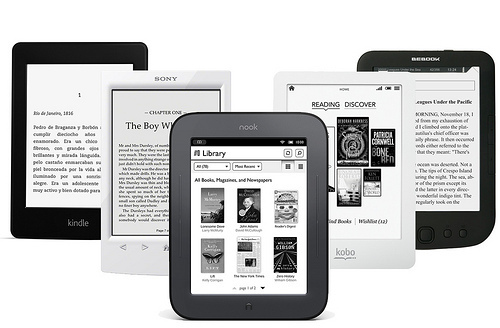
How Do I Read Thee? Let Me Count the Ways...
Simply going through the list of available ebook formats is completely exhausting. Among your main formats, you've got two that stand out: ePub and Mobi. These are the formats used by the Nook and the Kindle, respectively. Some evidence suggests that ePub is the most widely-used format across all types of ereaders, but all the numbers show that Amazon sells more ebooks than anyone.
And as an indie author, you want to appeal to the widest possible audience. So you format your books for both file types. But if you really want to spread the love, you're going to have to change your novel for a lot of other formats as well.
If you're going to start with one format, make it HTML. These files can be converted easily into mobi, ePub, and other types of ebook formats. The Archos Reader uses the .aeh format, based on XML, to read books. The Archor Player also supports PDF file types. Among other XML based formats, you've got DAISY and FictionBook, which is used by a variety of ereaders.Sony devices use the BBeB format, or Broadband eBooks. The extension is either .lrf or .lrx, and it's a proprietary file type. This means only Sony devices can read it, though you can find conversion products that will reformat the files. Want your book to be available on smartphones? You may want to convert it into Palm Media, or .pdb, files. Palm readers can be used on iPhones, Android, Blackberry and Windows devices. Barnes & Noble was originally supposed to use this file type for their ebooks, but switched to ePub after making the announcementConvert your books to iBook format so they can be read on Apple devices easily. Thankfully, the iBooks Author software is free. Go to Apple to get it, and start converting.
The worst part? This is just a small sampling of the various ebook formats that are out there. There are so many different devices, so much software, so many options it has gotten absolutely out of control. Any indie author could easily drive themselves crazy trying to keep up with the format wars. Instead of making yourself nuts, try distributing your books through all the biggest ebook publishers and through sites that offer ebooks across a wide variety of formats. Smashwords and Kobo, for instance, both offer ebooks in multiple file types.
Eventually, one hopes, one standard format will begin to stand out above the rest and become "the norm" in ebook publishing. Otherwise, indie authors are always going to struggle to keep up with the latest technology...and that's no good for anyone. If indie authors eventually lose the format wars, so does everyone else.

How Do I Read Thee? Let Me Count the Ways...
Simply going through the list of available ebook formats is completely exhausting. Among your main formats, you've got two that stand out: ePub and Mobi. These are the formats used by the Nook and the Kindle, respectively. Some evidence suggests that ePub is the most widely-used format across all types of ereaders, but all the numbers show that Amazon sells more ebooks than anyone.
And as an indie author, you want to appeal to the widest possible audience. So you format your books for both file types. But if you really want to spread the love, you're going to have to change your novel for a lot of other formats as well.
If you're going to start with one format, make it HTML. These files can be converted easily into mobi, ePub, and other types of ebook formats. The Archos Reader uses the .aeh format, based on XML, to read books. The Archor Player also supports PDF file types. Among other XML based formats, you've got DAISY and FictionBook, which is used by a variety of ereaders.Sony devices use the BBeB format, or Broadband eBooks. The extension is either .lrf or .lrx, and it's a proprietary file type. This means only Sony devices can read it, though you can find conversion products that will reformat the files. Want your book to be available on smartphones? You may want to convert it into Palm Media, or .pdb, files. Palm readers can be used on iPhones, Android, Blackberry and Windows devices. Barnes & Noble was originally supposed to use this file type for their ebooks, but switched to ePub after making the announcementConvert your books to iBook format so they can be read on Apple devices easily. Thankfully, the iBooks Author software is free. Go to Apple to get it, and start converting.
The worst part? This is just a small sampling of the various ebook formats that are out there. There are so many different devices, so much software, so many options it has gotten absolutely out of control. Any indie author could easily drive themselves crazy trying to keep up with the format wars. Instead of making yourself nuts, try distributing your books through all the biggest ebook publishers and through sites that offer ebooks across a wide variety of formats. Smashwords and Kobo, for instance, both offer ebooks in multiple file types.
Eventually, one hopes, one standard format will begin to stand out above the rest and become "the norm" in ebook publishing. Otherwise, indie authors are always going to struggle to keep up with the latest technology...and that's no good for anyone. If indie authors eventually lose the format wars, so does everyone else.
Published on December 29, 2013 05:30
December 28, 2013
Books on Film: Doc Hollywood
I've seen Doc Hollywood about 15 times, because I've seen every Michael J. Fox movie at least that many times, but this is one of his best. And if you're a fan of Disney movies, then you're probably already familiar with the plot. They've been widely accused of totally ripping it off.
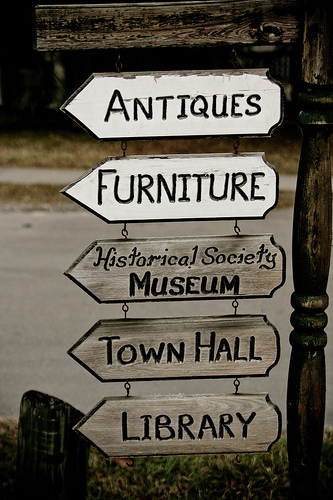
The Book
Doc Hollywood became a movie in 1991, but before that it was a book called What? Dead Again? about Dr. Benjamin Stone (Fox). He's going from Miami to LA to complete his residency. But before he can make it across the country, Dr. Stone breaks down in a rural area of Alabama.
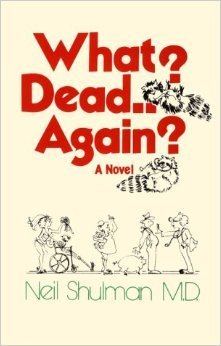
That's when things get interesting. The town really needs a doctor, and Stone is compelled to help. What unfolds is a funny and touching story that pokes fun at small town life while still paying homage to it. Shulman is well-qualified to write the story because he is an actual doctor. What? Dead Again? was his second novel, and he's still writing today. But this is his only story (so far) that became a Michael J. Fox movie, and that's why it makes my list.
The Movie
Fox starred as Ben Stone when Michael J. Fox was the hottest thing in Hollywood, and he leads the star-packed cast. You'll see Woody Harrelson and Bridget Fonda among the people living in the small town where he's landed. The film shows us Stone in his normal day-to-day training -- him and his fancy Porsche. He's on his way to become a rich, successful plastic surgeon in LA when he crashes on an Alabama back road, though some of the blame can be placed on a wayward cow. Stone's sentence is community service: work as a doctor at the hospital.

Pretty soon, Stone meets love interest Lou and several other colorful characters in the town. But will the small town charms be enough to keep him from the bright lights of Beverly Hills?
What Got Adapted?
Some of the plot is changed around and added to for the sake of the film. Stone's starting point is altered and the romance is more heavy-handed on film. But many of the funny treatment scenes are taken right from the book, and the original comedic flavor of the story certainly isn't lost. The book is very polarizing among fans of the movie: they either love it, or hate it. Watch the film before you read the book, and make up your mind.
The Controversy
There is another aspect to What? Dead Again? -- it's sort of been adapted more than once. Disney has been accused of copying the plot, almost exactly, for their movie Cars. In this, the title character crashes in a rural town and is forced to work in the area before he is allowed to leave. He also meets a girl in the town and falls in love, and must choose between big city glamor or small town life. The similarities here are pretty clear.

The Book
Doc Hollywood became a movie in 1991, but before that it was a book called What? Dead Again? about Dr. Benjamin Stone (Fox). He's going from Miami to LA to complete his residency. But before he can make it across the country, Dr. Stone breaks down in a rural area of Alabama.

That's when things get interesting. The town really needs a doctor, and Stone is compelled to help. What unfolds is a funny and touching story that pokes fun at small town life while still paying homage to it. Shulman is well-qualified to write the story because he is an actual doctor. What? Dead Again? was his second novel, and he's still writing today. But this is his only story (so far) that became a Michael J. Fox movie, and that's why it makes my list.
The Movie
Fox starred as Ben Stone when Michael J. Fox was the hottest thing in Hollywood, and he leads the star-packed cast. You'll see Woody Harrelson and Bridget Fonda among the people living in the small town where he's landed. The film shows us Stone in his normal day-to-day training -- him and his fancy Porsche. He's on his way to become a rich, successful plastic surgeon in LA when he crashes on an Alabama back road, though some of the blame can be placed on a wayward cow. Stone's sentence is community service: work as a doctor at the hospital.

Pretty soon, Stone meets love interest Lou and several other colorful characters in the town. But will the small town charms be enough to keep him from the bright lights of Beverly Hills?
What Got Adapted?
Some of the plot is changed around and added to for the sake of the film. Stone's starting point is altered and the romance is more heavy-handed on film. But many of the funny treatment scenes are taken right from the book, and the original comedic flavor of the story certainly isn't lost. The book is very polarizing among fans of the movie: they either love it, or hate it. Watch the film before you read the book, and make up your mind.
The Controversy
There is another aspect to What? Dead Again? -- it's sort of been adapted more than once. Disney has been accused of copying the plot, almost exactly, for their movie Cars. In this, the title character crashes in a rural town and is forced to work in the area before he is allowed to leave. He also meets a girl in the town and falls in love, and must choose between big city glamor or small town life. The similarities here are pretty clear.
Published on December 28, 2013 05:30
December 26, 2013
Writing 101: Exchanging Favors
The indie author community is getting bigger all the time, and it's important that you get some sort of edge or advantage in order to stand out (and keep selling books). So it becomes necessary to work with other indies and book bloggers who are part of the community. But be wary of exchanging favors. When you trade gifts, you may not get something of equal value in return.
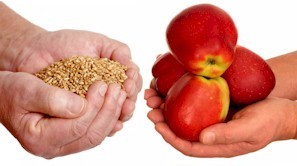
Swapping Stuff
You know how it works: you scratch my back, I'll scratch yours. What's in it for me? What do I get out of this deal? Nothing comes for free. There are a thousand cliches all about how you have to give in order to get, and that's kind of how it works when it comes to exchanges within the indie author community.
You can't join a forum group without bumping into a review-exchange thread, or shake a stick without seeing a dozen posts about trading blog follows fall down around you. Like my Facebook page and I'll like yours. Follow me so I can follow you back. The list goes on and on...and on. And if you actually wade through 13 forum pages and like all those blogs and Twitter accounts and Facebook pages...how many people do you think will actually return that favor?
Not very many. Exchanges are tough because you may wait a while to get your return gift, and it mightn't ever come. Review circles are hard to manage, and people who read forums disappear. Twitter accounts get suspended, and Facebook interest fades away. Exchanging favors can work up to a point, but you can't rely on help from the community to sell your books.
The thing about swapping is this: those other indie authors all want something, too. They want to sell books just like you do. So it may be a good idea to exchange a few favors to get something valuable -- a guest blog post, a spot on a prominent book tour, a great many more followers, a few book reviews. But lots of random following and review-promising isn't going to go very far, because promises easily given are also easily forgotten.
Exchanging favors becomes a waste of time if you do it all the time, and it takes away from more focused promotion you could be doing. So use your favors wisely to get something truly valuable from them, and work on individual marketing that really does succeed.

Swapping Stuff
You know how it works: you scratch my back, I'll scratch yours. What's in it for me? What do I get out of this deal? Nothing comes for free. There are a thousand cliches all about how you have to give in order to get, and that's kind of how it works when it comes to exchanges within the indie author community.
You can't join a forum group without bumping into a review-exchange thread, or shake a stick without seeing a dozen posts about trading blog follows fall down around you. Like my Facebook page and I'll like yours. Follow me so I can follow you back. The list goes on and on...and on. And if you actually wade through 13 forum pages and like all those blogs and Twitter accounts and Facebook pages...how many people do you think will actually return that favor?
Not very many. Exchanges are tough because you may wait a while to get your return gift, and it mightn't ever come. Review circles are hard to manage, and people who read forums disappear. Twitter accounts get suspended, and Facebook interest fades away. Exchanging favors can work up to a point, but you can't rely on help from the community to sell your books.
The thing about swapping is this: those other indie authors all want something, too. They want to sell books just like you do. So it may be a good idea to exchange a few favors to get something valuable -- a guest blog post, a spot on a prominent book tour, a great many more followers, a few book reviews. But lots of random following and review-promising isn't going to go very far, because promises easily given are also easily forgotten.
Exchanging favors becomes a waste of time if you do it all the time, and it takes away from more focused promotion you could be doing. So use your favors wisely to get something truly valuable from them, and work on individual marketing that really does succeed.
Published on December 26, 2013 05:30
December 25, 2013
Writing 101: Presentation
For hundreds of years, clever salesmen made a great living by selling water in bottles and telling people to rub dirt on their wounds. Scoff if you will, but this is the absolute truth. You see, it usually isn't about what you're selling. It's about the presentation...and that goes for self-published books, too.

Snake Oil and Novels
We've all heard the jokes and seen the satires of the old-fashioned hawkers and hucksters who used to sell people magical potions and miracle medical remedies, when really the bottles are filled with things like cow dung and cat urine. You've probably heard of the expression "snake oil" and "snake oil salesman." Well, that used to be a real thing.
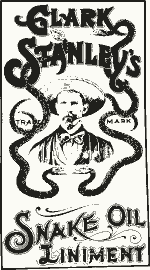
People will buy snake oil if the presentation is right, so they should certainly be willing to buy your books. It's all about how you present those books to the rest of the world. Once you get past the obvious factors, it comes down to salesmanship. How good is yours?
Cover. A great cover is a given in self-publishing. You want to catch the eye and you want to stand out, but you also want a book that looks like a readable book. Remember to check the cover on several device sizes to make sure it's easy to read across platforms.Price. Set the right price, or all the salesmanship in the world won't help. You've got to price your books according to their competition, not necessarily according to their worth. Trailers. If you want to present your book in an exciting way, create a trailer. Visual imagery works better than text, and this medium allows you to combine them. Tell the story in the trailer, just enough to make people want more.Tweets. Tweet about your books every day, at least once. But don't tweet "go buy this book" because that won't work. Give readers a reason to click that link. Ask them a question, give them a compelling quote, write something shocking -- compel them to buy, and they will.Extras. Give your book even more depth by offering extras. Start giving out free samples, create images and maps to show off, write blog posts about it and present!
The way you present is important, but remember it only matters if you're actually doing it. Promote, and keep promoting, and you'll get better and better at it.

Snake Oil and Novels
We've all heard the jokes and seen the satires of the old-fashioned hawkers and hucksters who used to sell people magical potions and miracle medical remedies, when really the bottles are filled with things like cow dung and cat urine. You've probably heard of the expression "snake oil" and "snake oil salesman." Well, that used to be a real thing.

People will buy snake oil if the presentation is right, so they should certainly be willing to buy your books. It's all about how you present those books to the rest of the world. Once you get past the obvious factors, it comes down to salesmanship. How good is yours?
Cover. A great cover is a given in self-publishing. You want to catch the eye and you want to stand out, but you also want a book that looks like a readable book. Remember to check the cover on several device sizes to make sure it's easy to read across platforms.Price. Set the right price, or all the salesmanship in the world won't help. You've got to price your books according to their competition, not necessarily according to their worth. Trailers. If you want to present your book in an exciting way, create a trailer. Visual imagery works better than text, and this medium allows you to combine them. Tell the story in the trailer, just enough to make people want more.Tweets. Tweet about your books every day, at least once. But don't tweet "go buy this book" because that won't work. Give readers a reason to click that link. Ask them a question, give them a compelling quote, write something shocking -- compel them to buy, and they will.Extras. Give your book even more depth by offering extras. Start giving out free samples, create images and maps to show off, write blog posts about it and present!
The way you present is important, but remember it only matters if you're actually doing it. Promote, and keep promoting, and you'll get better and better at it.
Published on December 25, 2013 05:30
December 24, 2013
Writing 101: Do You Believe?
I'm not one of these people who puts a whole lot of stock in faith, even during the holiday season, but I do know this: you've got to have it to be a writer. So today I've got to ask you: do you believe?

Gotta Have Faith
In the past, I've said that you have to be a little bit foolish in order to be an author -- and that's still true. But beyond foolishness, you need faith. Once you learn more about the business, and foolishness fades, all you have to rely upon is your faith. Some days, belief is all you will have. That, and a bunch of rejection letters and negative reviews.
And once all that negativity piles up, it's going to be darned difficult to continue believing in yourself, your writing and your stories. You're going to have days when you're totally convinced you are actually a hack and a failure, that it's all been nothing but a waste of time. Believing in yourself is going to be hard, nigh impossible.
So find something else to have faith in. I choose Santa Claus. I can't always believe in myself or even in books in general. Maybe spoken word stories are the future, what do I know? But I can believe that if Santa Claus can inspire generosity and kindness and feelings of childlike wonder in everyone (and he does), then I can get another book finished. I have faith that I'll finish -- not that the book will be any good, but dammit it will be done. And that's enough. Just finishing is good enough, because it's quite hard just to do that. I don't have to believe it will be good to get to the end.
And you don't, either. Have faith in something, anything, and maintain it. That will allow you to just keep on writing...and maybe to care a little bit less about the end result.

Gotta Have Faith
In the past, I've said that you have to be a little bit foolish in order to be an author -- and that's still true. But beyond foolishness, you need faith. Once you learn more about the business, and foolishness fades, all you have to rely upon is your faith. Some days, belief is all you will have. That, and a bunch of rejection letters and negative reviews.
And once all that negativity piles up, it's going to be darned difficult to continue believing in yourself, your writing and your stories. You're going to have days when you're totally convinced you are actually a hack and a failure, that it's all been nothing but a waste of time. Believing in yourself is going to be hard, nigh impossible.
So find something else to have faith in. I choose Santa Claus. I can't always believe in myself or even in books in general. Maybe spoken word stories are the future, what do I know? But I can believe that if Santa Claus can inspire generosity and kindness and feelings of childlike wonder in everyone (and he does), then I can get another book finished. I have faith that I'll finish -- not that the book will be any good, but dammit it will be done. And that's enough. Just finishing is good enough, because it's quite hard just to do that. I don't have to believe it will be good to get to the end.
And you don't, either. Have faith in something, anything, and maintain it. That will allow you to just keep on writing...and maybe to care a little bit less about the end result.
Published on December 24, 2013 05:30



